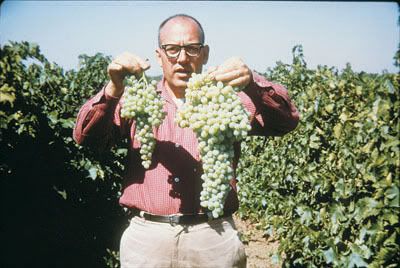Plant Response Mechanisms
When most people think of plant, they really don't think of them being very responsive, however, this is not the case. Like humans, plants have hormones that initiate changes within the plant. One of several hormones within plants are auxins. Auxins are responsible for plant growth. Auxin can promote growth by elongating cells but also inhibit growth when too much auxin accumulates in one area. Paired with other hormones, auxin influences when leaves fall, the shape of the plant and cell differentiation. Auxin ensure that leaf separation occurs at the abscission zone and that the stem is protected by a layer of wax when the leaf falls. Scientists also suspect that in apical dominance, auxins encourage growth at the top of plant but suppresses it at the bottom, giving some trees a conical shape.
Gibberellins are hormones that are important in plant reproduction and stem growth. One example of gibberellin's affect would be on dwarf corn. When gibberellins are added to dwarf corn, it grows as high as normal corn. Gibberellins are also important in the stimulation of pollen germination and activation of alpha amylase. Alpha amylase is the enzyme that produces glucose for a growing embryo.The picture below shows gibberellins' affect on grapes.
Cytokinins are hormones that stimulate cell division and slow leaf aging. When a plant is plucked and treated with cytokinins, the plant will age slower than if not treated.
Ethylene is a very small hormone, so small it can escape from plants as a gas. Auxin promotes ethylene production. Ethylene increases the speed at which fruits ripen. When fruit, like apples, are placed in a paper bag, they ripen faster because ethylene escapes very slowly through the bag. Besides this use, abundance of ethylene can also influence the production of either female or male plants.
The presence of absciscic acid causes stomata to close. This will in turn cause wilting. Absciscic acid can have the opposite affect of auxins and gibberellins.
Artificial hormones are now produced regularly and in mass quantities, and usually inexpensively. Artificial hormones often work better than plant-produced hormones because they take longer for plants to break down.